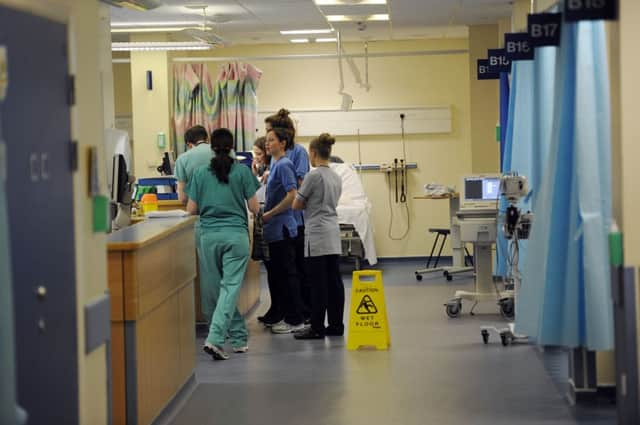NHS plans to prevent bosses bullying nurses


At high-level talks involving First Minister Alex Salmond, health secretary Alex Neil, opposition party leaders and the Royal College of Nursing (RCN), ministers agreed to requests to take further action to combat staff being bullied.
This includes appointing someone in each health board to act as a “champion” on bullying, harassment and culture change, helping staff feel able to report concerns and making sure they are acted upon.
Advertisement
Hide AdAdvertisement
Hide AdThey also agreed to RCN requests that cases of bullying and harassment should be regularly reported at health board meetings and action taken to try to resolve problems discussed.
There was also agreement to improve the monitoring of staffing numbers and pressures on wards to boost patient care, with real-time data being used to identify demand and ensure there are enough nurses to cope.
It follows growing concerns about staff shortages affecting services, including the possibility that this could have contributed to increased mortality rates in NHS Lanarkshire.
The meeting of politicians and the RCN this month was called after concerns were highlighted in the Scottish Parliament following surveys of NHS workers, which showed worries over staff numbers as well as bullying. Staff shortages have been highlighted repeatedly as a concern.
A survey of 44,000 NHS employees found that only 31 per cent felt there were enough staff to allow them to do their job properly. While there are more nurses now than when the SNP came to power and numbers have been rising again more recently, there are still 1,000 fewer nursing staff working in Scotland compared to a peak in 2009 – 57,368 as opposed to 58,428.
There have also been concerns that many staff feel unable to speak out about their worries about patient care because of the culture in some organisations and fears of the impact on their jobs.
RCN Scotland director Theresa Fyffe welcomed the latest moves, saying: “Nurses deliver the vast majority of patient care, so it’s really important that the Scottish Government listens to the concerns of our members.”
Scottish Labour’s health spokesman, Neil Findlay, said: “I am particularly keen to see the impact of real-time monitoring of staffing in wards take effect so that if there isn’t adequate staffing it is acted upon.”
The Scottish Government said its workforce planning tools were already being used to monitor staffing numbers, with discussion about how the data could now be employed further.